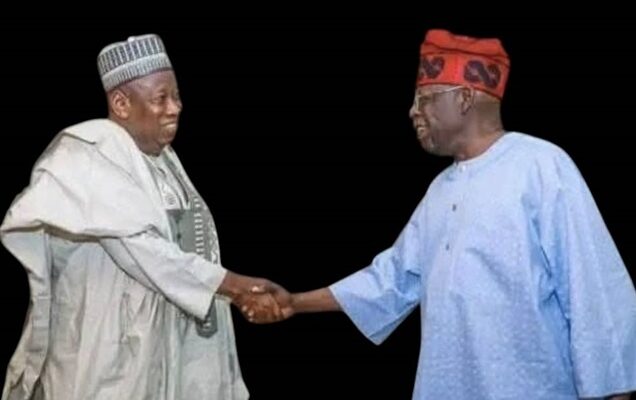By Musa Bakare
On August 3, 2023, during the 12th National Executive Committee (NEC) meeting of the All Progressives Congress (APC), former Kano State Governor Dr. Abdullahi Umar Ganduje was officially ratified as the party’s National Chairman. One year into his tenure, Dr. Ganduje has proven to be more than a placeholder; he has become a pillar of stability and strategic leadership for Nigeria’s ruling party.
His tenure has been defined by internal consolidation, grassroots reactivation, and focused political coordination aimed at securing victory for President Bola Ahmed Tinubu’s reform agenda and positioning the APC for continued dominance ahead of the 2027 general elections.
Ganduje inherited a victorious but fragmented party, still reeling from internal conflicts following the 2023 elections. Through calculated engagement and a reconciliatory tone, he unified feuding factions, reinvigorated dormant party structures, and enforced internal discipline across the ranks.
One of his earliest tests was the political crisis in Ondo State. By deploying a reconciliation committee, Ganduje brokered peace between late Governor Rotimi Akeredolu’s supporters and that of his deputy (now Governor) Lucky Aiyedatiwa. This avoided a damaging internal split and preserved the APC’s hold on the state.
Dr. Ganduje’s belief that political strength lies at the grassroots has guided a number of party-wide reforms:
Establishment of functional APC offices in all 8,813 wards across the country.
Rollout of a digital membership registration platform to accurately manage the party’s over 40 million members.
Formation of powerful campaign councils for off-cycle elections in Kogi, Imo, and Ondo where APC candidates emerged victorious.
These efforts, blending traditional mobilization with data-driven systems, have boosted APC’s operational capacity and popular engagement at the ward level.
He has pushed for a more inclusive APC. Under his leadership, women, youths, and marginalized groups have gained increased visibility and participation within party structures. His forward-thinking proposal to establish a National Institute of Progressive Studies reflects this inclusive outlook aimed at educating members on democratic governance, internal party democracy, and anti hate speech campaigns.
His leadership style has also led to high-profile defections into the APC. The most notable being the defection of Delta State’s performing governor, Sheriff Oborevwori, several senators and House of Representative members with more expected to follow. This wave of political realignment is both a testament to Ganduje’s influence and an indication of APC’s growing nationwide appeal.
Kano, with over 5 million voters, remains a political powerhouse. As a former governor and now national chairman, Ganduje’s control of the political architecture of the state makes APC’s path to reclaiming Kano in 2027 increasingly apparent, especially given growing public dissatisfaction with the NNPP-led government.
His continued influence in the broader North-West geopolitical zone, Nigeria’s most populous voting bloc is strategic to APC’s 2027 victory. President Tinubu has wisely sustained his backing for Ganduje, recognizing the critical importance of this region in securing a national electoral mandate.
Opposition parties, especially the PDP and NNPP have viewed Ganduje as a formidable obstacle to their ambitions. Old controversies have been dug up in a bid to derail his leadership. But Ganduje has refused to be distracted. Instead, he remains focused on party unity, expanding the APC base, and solidly backing the Tinubu administration’s reforms and the renewed hope agenda.
His calm, measured leadership has silenced many internal critics, and his growing achievements are helping to restore confidence in the APC’s ability to govern and grow.
Ganduje’s leadership style fuses political sagacity with administrative discipline. He has proven himself not only as a skilled politician, but also as a manager of people, systems, and ideas. His ability to balance intra-party interests while maintaining a clear external strategy has made APC stronger today and firmly positioned for future general elections.
As we look ahead to 2027, the APC under Dr. Abdullahi Umar Ganduje is better organized, more inclusive, and more strategically positioned than at any opposition parties. Unlike those angling for a coalition, his leadership has firmly glued the party together, providing the engine driving the renewed hope agenda and the reform and the bridge connecting President Tinubu’s governance agenda to the grassroots.
History will remember him not just as a political operator, but as a reformer who stabilized the APC, modernized its operations, and laid the foundation for another decade of progressive governance in Nigeria.
– Musa Asiru Bakare is a Member of the Tinubu Support Group (TSG). He writes from Lokoja, Kogi State.




